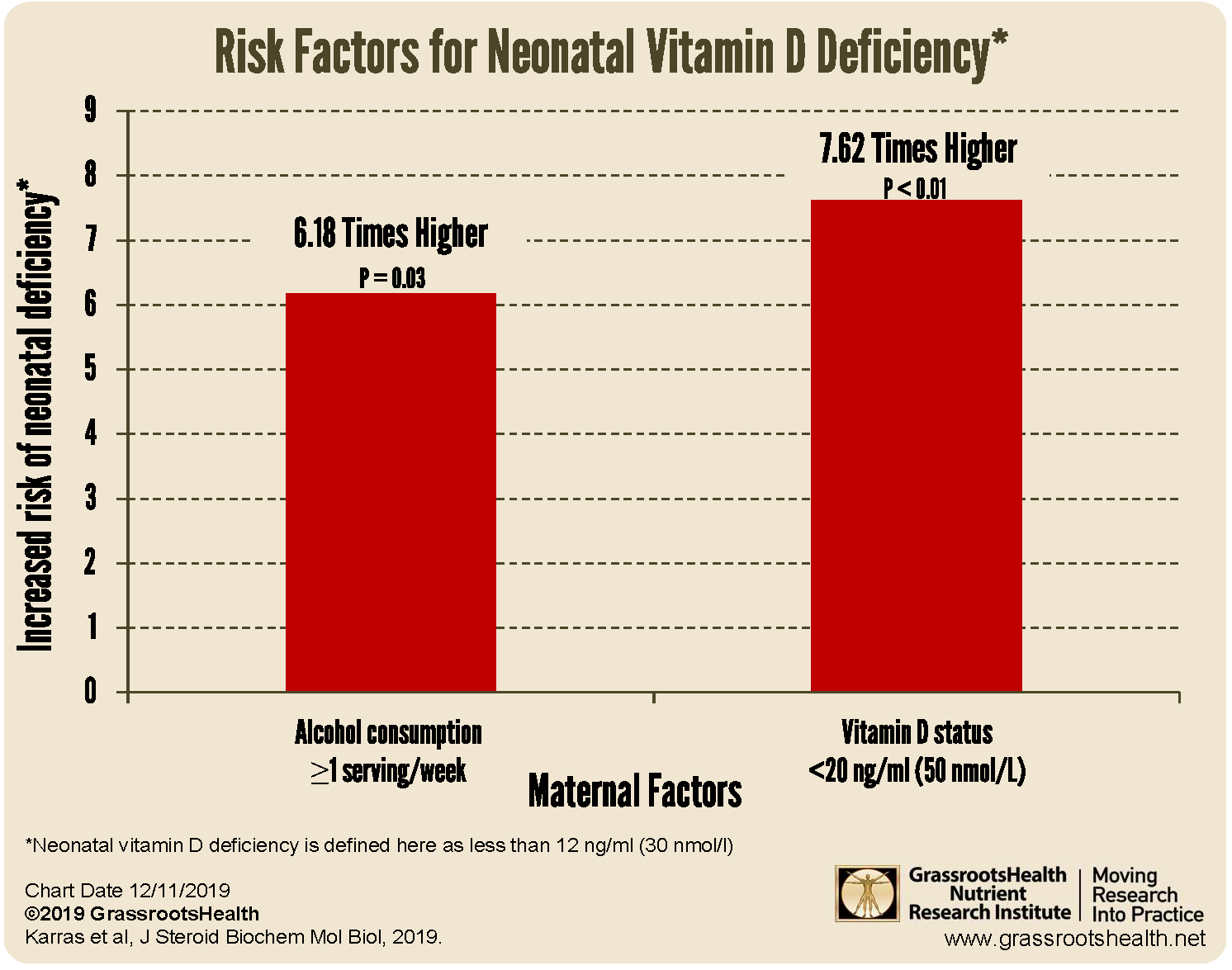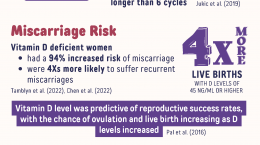Published on December 17, 2019
 Vitamin D plays an essential role during pregnancy, for both the health of the mother as well as the health of the developing baby, during and after pregnancy. In fact, pregnancy is the only time during the life cycle that vitamin D metabolism is not directly related to calcium. The conversion of vitamin D into its active form reaches over three times the normal amount by birth, with calcium levels remaining normal. There is something special about vitamin D during pregnancy!
Vitamin D plays an essential role during pregnancy, for both the health of the mother as well as the health of the developing baby, during and after pregnancy. In fact, pregnancy is the only time during the life cycle that vitamin D metabolism is not directly related to calcium. The conversion of vitamin D into its active form reaches over three times the normal amount by birth, with calcium levels remaining normal. There is something special about vitamin D during pregnancy!
Why is Vitamin D So Important For Pregnancy and the Baby?
For several years, GrassrootsHealth has emphasized the importance of vitamin D for pregnancy and the newborn, especially with the Protect Our Children NOW! project and its implementation at the Medical University of South Carolina. This project confirmed previous research findings that pregnant women with serum vitamin D levels of at least 40 ng/ml had a 60% lower risk of preterm birth.
The benefits of vitamin D go well beyond pregnancy, however. Vitamin D deficiency in newborns presents an increased risk for impairment in immune function, brain development, and skeletal development, among other things. Health conditions that have been associated with prenatal vitamin D deficiency include asthma, ear and lung infections, autism, type 1 diabetes and other autoimmune conditions, and an increased risk for certain cancers and cardiovascular disease later in life. See our Disease Incidence Prevention Chart for Pregnancy and Children for more details and resources.
What Factors May Affect a Newborn’s Vitamin D Status?
Neonatal vitamin D deficiency typically stems from a mother deficient in vitamin D due to lack of sun exposure, supplementation, and dietary vitamin D during pregnancy.
In a recent cohort study by Karras et al., maternal and neonatal vitamin D statuses were measured at birth and independent risk factors were assessed for maternal vitamin D status.
The research team measured the vitamin D status of 129 mother-newborn pairs postnatally and categorized the pairs into groups based on the baby’s vitamin D level at birth. They found that mothers who gave birth to babies whose vitamin D level was less than 12 ng/ml (< 30 nmol/l) or between 12 and 20 ng/ml (30-50 nmol/l) at birth had lower vitamin D levels than those who gave birth to babies whose vitamin D was greater than 20 ng/ml (> 50 nmol/l). This association is consistent with previous findings showing a direct relationship between the vitamin D level of the mother and that of the baby.
Risk for newborns having a vitamin D level below 12 ng/ml was 7.62-times higher in those born to mothers with vitamin D levels less than 20 ng/ml compared to mothers with levels of 20 ng/ml or higher, after adjusting for alcohol consumption and UVB exposure.
One additional risk factor for newborns to have a vitamin D level below 12 ng/ml in this study was maternal alcohol intake during pregnancy. Babies born to mothers who drank at least 1 alcoholic beverage per week had a 6.18-times higher risk for neonatal vitamin D deficiency at birth, after adjusting for maternal vitamin D status and UVB exposure.
In conclusion, this study supports previous research showing a link between maternal vitamin D level and newborn vitamin D level, with an added risk of alcohol intake during pregnancy.
Help ensure a healthy vitamin D level for baby by testing during pregnancy
Make sure you know your vitamin D level, and take steps to keep it within a target of 40-60 ng/ml or 100-150 nmol/L! Through GrassrootsHealth Nutrient Research Institute, you can also test your essential elements magnesium, copper, zinc and selenium, toxins such as lead, mercury and cadmium, as well as your omega-3 levels, inflammation levels and thyroid stimulating hormone (TSH) level. Find out your levels today! Log on to the test selection page (click the link below) to get your tests and see for yourself if your levels can be improved.
Make sure you track your results before and after, about every 6 months!
How can I track my nutrient intake and levels over time?
To help you track your supplement use and nutrient levels, GrassrootsHealth has created an online tracking system called myData-myAnswers. For each specific supplement, you can track what days you take it, how much, and many other details. This will help you know your true supplemental intake and what patterns of use work for you to reach and maintain optimum nutrient levels. Check it out today!







